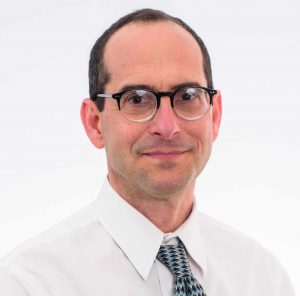
Samuel Dorevitch, MD, MPH is a Professor in the Division of Environmental and Occupational Health Sciences within the School of Public Health at the University of Illinois Chicago. As a Fulbright Specialist, he will be hosted by the Research Institute for Bioscience & Biotechnology (RIBB), where his focus will be on capacity building in water science policy research in Nepal
Following medical training at the University of Chicago, he completed residency training in Emergency Medicine and Occupational/Environmental Medicine. He teaches a graduate course in “Global Environmental Health” and has taught “Occupational and Environmental Toxicology.” Dr. Dorevitch’s primary research interest is the linkage between water quality and health. Since 2017, he has conducted research in rural areas of Kenya that evaluated point-of-use water treatment. Since then, his research aims to improve water quality and health at the community-scale. The research in Kenya has broadened to also address chronic kidney disease, heavy metals in water, as well as COVID surveillance through wastewater monitoring. His research with a U.S. focus has addressed recreational waterborne illness, molecular methods for monitoring bacteria in surface water, evaluating lead in drinking water in rural Illinois, and preparedness of health departments for climate change. His Google Scholar research profile can be found at https://scholar.google.com/citations?hl=en&user=7TW7r6wAAAAJ .
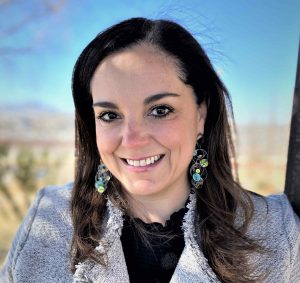
Dr. Lucía Durá is Associate Professor of Rhetoric and Writing Studies in the English Department and Associate Dean of the Graduate School at The University of Texas at El Paso (UTEP). As a Fulbright Specialist, she will be hosted by the South Asian Foundation for Academic Research (SAFAR), where she will be researching on social justice, community studies, and humanistic rhetoric.
At UTEP, Lucía is a member of the Hispanic Servingness Research Council and of the SEA Change Core Team. Outside of UTEP, Lucía co-leads the Hispanic Serving Research Universities Graduate Deans Affinity Group and serves on the advisory board of the Texas Center for Legal Ethics. She also co-edits the Technical Communication and Social Justice journal with Jerry Savage. In her research, Lucía focuses on understanding and leveraging community assets to solve complex problems by facilitating productive dialogues about risk to design sustainable social and organizational change.
Her recent publications include a book chapter on the use of improv as a pedagogical tool and an article on the preparation of science education teachers on the U.S.-Mexico border. In 2023, she was invited to do a TEDx talk on her approach to racial categories. Teaching and mentoring students is especially important to her, both in the context of everyday work and in witnessing the impact of UTEP alumni in and outside of El Paso.
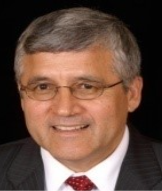
Dr. Juan F. Arratia is a Research Professor, Mentor, Founder, and President of Scientific Caribbean Foundation in San Juan, Puerto Rico. He is also a consultant in advanced automation for various Puerto Rican pharmaceutical and medical devices companies. As a Fulbright Specialist, he will be hosted by The Small Earth Nepal, where he will work on engaging students in STEM education and research.
Dr. Juan F. Arratia has taught and conducted research at universities in Chile, Puerto Rico, and United States. He has lectured and given conferences on advanced automation, robotics, vision systems, artificial intelligence, total quality management and science and engineering education in Chile, Bolivia, Ecuador, Guatemala, Panama, Mexico, Brazil, Nicaragua, Perú, Canada, Spain, the Netherlands, Turkey, Japan, Philippines, Singapore, Australia, China, Puerto Rico and in the US mainland.
From 1998 to 2008, he was the Director and Principal Investigator of the Model Institutions for Excellence (MIE) Project. From 2008 to 2018, he was the Executive Director of the Ana G. Méndez University System (AGMUS) Student Research Development Center. For twenty years he was a part of AGMUS, and during his tenure, he wrote proposals to NSF, resulting in awards of more than 85 million USD for MIE, CCCE, AGMUS Institute of Mathematics, Administration of Arecibo Observatory, among others. In November 2007, he was awarded the Presidential Award for Excellence in Science, Mathematics and Engineering Mentoring at a ceremony in the White House in Washington DC.
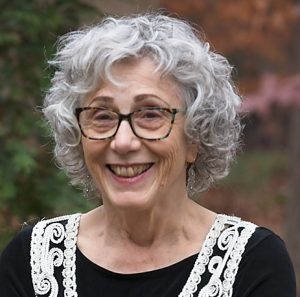
Barbara Kamholz is a physician and consultant for WHO Nepal’s Dementia Plan for Nepal. Her research today revolves around presentations and risk factors for delirium identified in the emergency room at Trishuli Hospital, Nuwakot, Nepal, emphasizing structural determinants and medical factors relevant to Low or Middle-Income Country (LMIC).
As a Fulbright Specialist, she will be hosted by Kathmandu University School of Medical Sciences, where she will work to develop a geriatrics curriculum for community-assigned nurses—a program supported by World Health Organization (WHO) Nepal and the Consortium of Universities for Global Health. The curriculum aims to equip community nurses with a set of skills to provide care to the elderly population in Nepal, addressing medical, psychiatric, psychological, and community engagement aspects.
Barbara has worked for many years as a consultation psychiatrist in the military retirement hospital system (Veterans’ Administration). In terms of research and teaching interests, she was involved in a successful national outpatient caregiver project within the Veterans Administration in Durham, North Carolina, from 2009-2012. She was also a principal founder of the American Delirium Society and an original member of the European Delirium Association, which provided her with their second annual Maeve Leonard Award for vital contributions to the field. After retirement in 2020, she chose to develop geriatrics teaching programs in LMIC, beginning with Nepal.
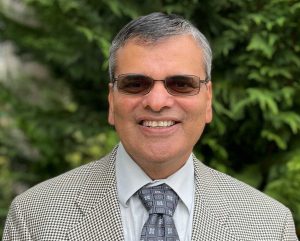
Dr. Dilip Panthee is an Associate Professor and Tomato Breeder at the Department of Horticultural Science at North Carolina State University (NCSU). As a Fulbright Specialist, he will be hosted by Nepal Agricultural Research Council (NARC), where he will be working on advancing technology in vegetable breeding within the context of Nepal.
His association with NCSU began in May 2008 when he joined as an Assistant Professor. Prior to this, he worked as a Post-Doctoral Research Associate at the Department of Plant Sciences, The University of Tennessee, Knoxville, TN. He was also a Lecturer at the Institute of Agriculture and Animal Sciences (IAAS), Tribhuvan University, Nepal, for three years. Additionally, he served as a Plant Breeder/Seed Technologist at Lumle Agricultural Research Center, Nepal.
Throughout his career, Dr. Panthee has achieved significant milestones, releasing ten hybrid cultivars, nineteen breeding lines of tomato, and three soybean breeding lines. His research contributions extend to over eighty-five journal articles, ten book chapters, more than seventy-five abstracts, and research reports. He has played a pivotal role in mentoring numerous graduate students, Post-Doctoral Research Scientists, Research Scholars, and Visiting Scientists. Recognizing his valuable contributions to the scientific community, he has received ten various professional awards.